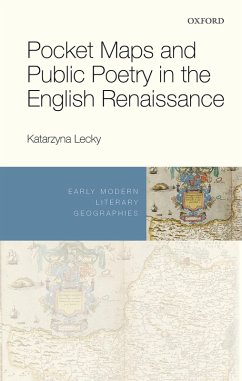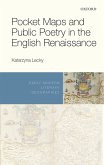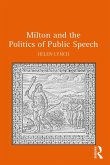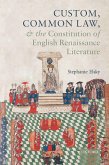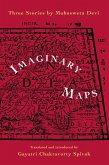Katarzyna Lecky explores how early modern British poets paid by the state adapted inclusive modes of nationhood charted by inexpensive, small-format maps. She explores chapbooks ('cheapbooks') by Edmund Spenser, Samuel Daniel, Ben Jonson, William Davenant, and John Milton alongside the portable cartography circulating in the same retail print industry. Domestic pocket maps were designed for heavy use by a broad readership that included those on the fringes of literacy. The era's de facto laureates all banked their success as writers appealing to this burgeoning market share by drawing the nation as the property of the commonwealth rather than the Crown. This book investigates the accessible world of small-format cartography as it emerges in the texts of the poets raised in the expansive public sphere in which pocket maps flourished. It works at the intersections of space, place, and national identity to reveal the geographical imaginary shaping the flourishing business of cheap print. Its placement of poetic economies within mainstream systems of trade also demonstrates how cartography and poetry worked together to mobilize average consumers as political agents. This everyday form of geographic poiesis was also a strong platform for poets writing for monarchs and magistrates when their visions of the nation ran counter to the interests of the government.
Dieser Download kann aus rechtlichen Gründen nur mit Rechnungsadresse in A, B, BG, CY, CZ, D, DK, EW, E, FIN, F, GR, HR, H, IRL, I, LT, L, LR, M, NL, PL, P, R, S, SLO, SK ausgeliefert werden.

